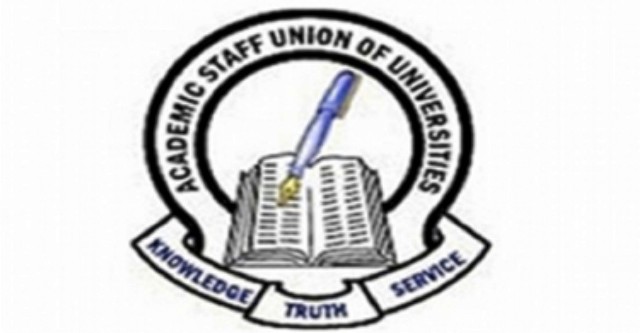Editorial
ASUU’s Endless Campaigns

Unless reason prevails, members of the
Academic Staff Union of Nigerian
Universities (ASUU), will commence a nationwide strike next week. Already, sufficient notice has been given and the Federal Government has not done much to avert the strike.
At a time when students are preparing to return to school from a long vacation, this strike can inflict an unprecedented pain on persons undergoing tertiary education in Nigeria. Once again, the quality and dependability of the Nigerian educational system will come to question. Once again, the reason to send children abroad to study will be justified.
While Nigerians are infuriated with the prospect of another ASUU strike, the Federal Government last week denied breaching the 2009 agreement with ASUU. It however admited that the implementation is slow owing to the current economic realities. How this stance can avert any strike is unimaginable.
According to the ASUU chairman in the University of Abuja, Ben Ugheoke, the Federal Government had failed to embark on meaningful dialogue with ASUU. If this is true, it is most regrettable. For a government that finds other people to blame for failures under its watch should have known that Nigerians are watching.
The Tide thinks that ASUU strikes may not be new, but the timing of the current one and the prevailing circumstances can make this one the mother of all strikes. This is more so because apart from the body language of the present administration, the state of the economy and other demands in the polity might keep the universities locked up for long.
That is why the Federal Government and all well-meaning persons must do something now to avert this strike. Another ASUU strike may be too hard on the students and could be devastating on the limited infrastructure in the universities. But even more is the stab on education in the country and the bad name it brings from abroad.
Having been inundated with details of ASUU’s demand, Nigerians are not crossed with the lecturers. Everybody expects that because most of the demand of ASUU is altruistic and in the overall interest of the student and the country, government would be disposed to doing her part honourably. Even as such parents would join to ask for the strike to be averted, they want ASUU to ensure that Nigerian universities come to international reckoning.
Incidentally, the demands by ASUU currently go beyond the implementation of the 2009 ASUU/FG agreement. In the recent past, a number of things have also been recorded in the Ivory Tower that the lecturers find objectionable. Some of the universities are protesting the abrogation of their primary schools; others are against the appointment and removal of some Vice Chancellors, while the reduction in the budgetary allocation to education is a pain for all.
Indeed, the abrogation of the post UTME and the use of JAMB to be the sole authority to admit students for the universities is another matter. On this, so many Nigerians are surprised that ASUU has not gone to court because the laws establishing the universities give the Senate the right to admit and certify persons worthy for the award of degrees.
Frustrated by the situation, some Nigerians have suggested that federal universities should be privatised since they have shown over the years that they are incapable of running a functional and productive university system. If this happens, government will be better positioned to formulate and enforce standards.
But some also think that ASUU should not embark on another strike until it is ready to hold out till the needed changes are in place. They think that the back and forth by ASUU is serving only to scandalise the country and frustrate the learning public. Clearly, there should be an end to this show of shame.
Even so, we think that this is the most un-auspicious time to embark on strike. ASUU should take a queue from the civil service that ought to have gone on strike over failed promises and unreviewed National Minimum Wage. The times actually call for patriotism seriously. We should not throw away the child with the bath water.
Editorial
As NDG Ends Season 2

Editorial
Beginning A New Dawn At RSNC

Editorial
Sustaining OBALGA’s Ban On Street Trading

-
City Crime5 days ago
NCSU Hails Fubara Over 2025 New Telegraph Man Of The Year Award
-
Nation5 days ago
Nigeria Risks Drifting Without Strong Education Policies-Don
-
Nation5 days ago
Ex-UNIPORT SUG Leaders Organise Symposium In Honour Of VC
-
Nation5 days ago
Council Chairman Reconstitutes Revenue, Anti-Illegal Trading Committees To Boost IGR
-

 Education4 days ago
Education4 days agoElga boss tasks law students on academics strides
-

 News1 day ago
News1 day agoAmend Constitution To Accommodate State Police, Tinubu Tells Senators
-

 Politics1 day ago
Politics1 day agoSenate Urges Tinubu To Sack CAC Boss
-
Business1 day ago
President Tinubu Extends Raw Shea Nuts Export Ban To 2027

